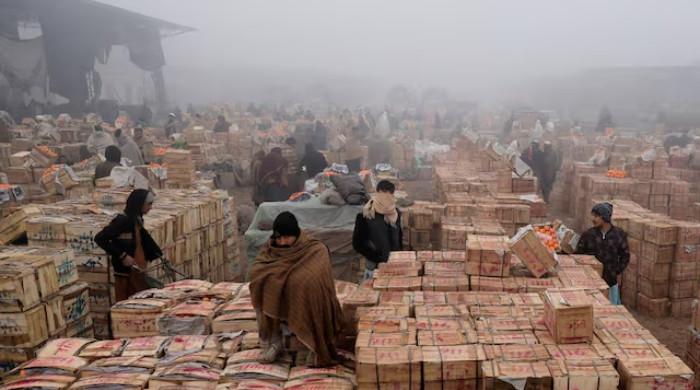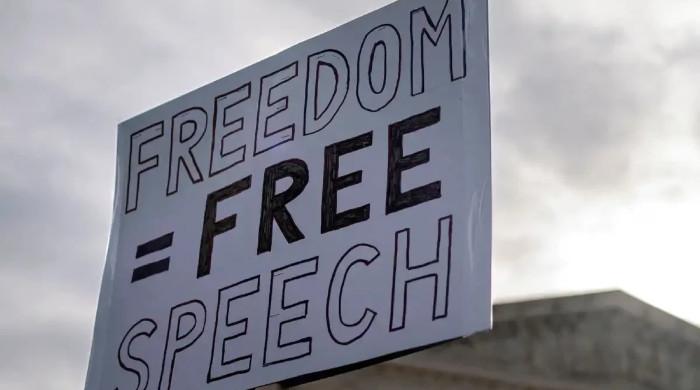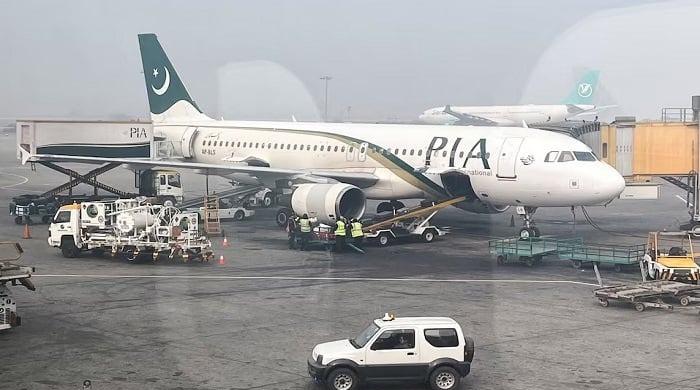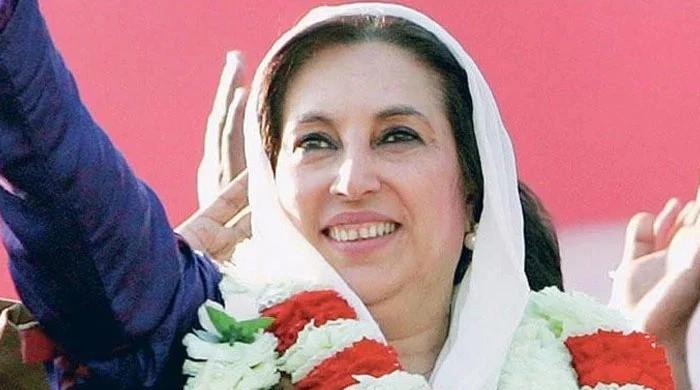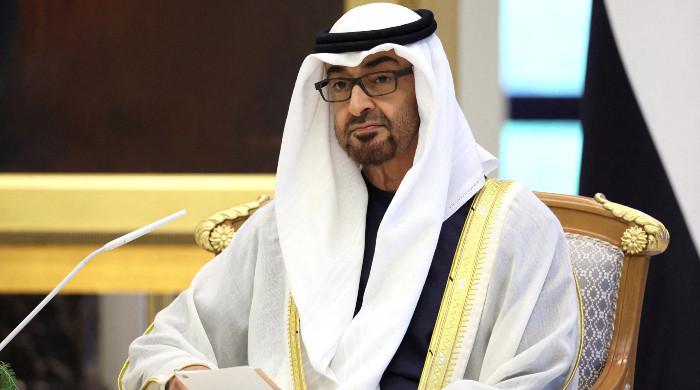An 'unusual meeting' with US Ambassador Donald Blome
What is the current status of the Pak-US relationship and how people-to-people contacts can play a part in bringing the two countries closer?
November 16, 2023
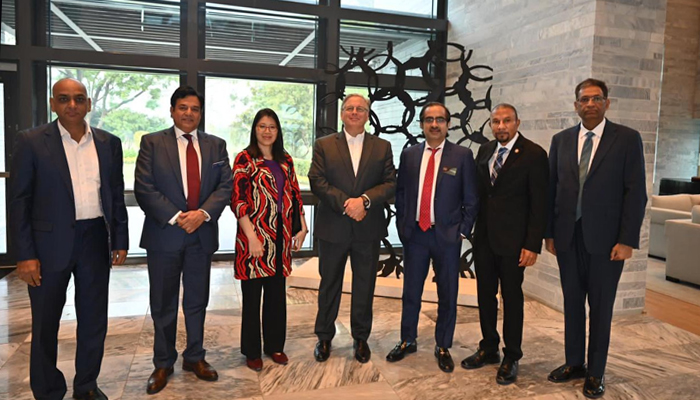
What is the current status of the Pak-US relationship and how people-to-people contacts can play a part in bringing the two countries closer?
These questions were at the top of my mind when I got a rare chance to meet Donald Blome, the US Ambassador to Pakistan.
The audience was different from the ones diplomats have with journalists.
Here, the ambassador graciously gave a delegation — consisting Phil Ramos, the deputy speaker of New York State Assembly, Dr Ijaz Ahmad, Chairman American-Pakistani Public Affairs Committee, Imtiaz Rahi, President APPAC (National), Dr Pervaiz Iqbal, board member APPAC, and this scribe — an hour to meet.
The rendezvous was set at 07:30am at his Islamabad residence in the diplomatic enclave. It was aimed at briefing Ambassador Blome about the visit of the deputy speaker.
Ambassador lauded Ramos for visiting Pakistan and expressed his pleasant surprise that the APPAC has its representation all over the United States.
After formal greetings, Donald Blame revealed that the relationship between Pakistan and the United States of America has progressed from security to economic stability.
No doubt, it has taken long to reach this juncture. Otherwise, for the last 76 years, the bilateral relationship has mainly revolved around security issues.
Can Ambassador Blome truly transform it?
Well, early this year, he had played a crucial role in pleading Pakistan’s case to the Department of State for securing the IMF deal.
Thanks to his efforts and those of the then-finance minister Ishaq Dar, Pakistan averted a looming default.
The ambassador said that ensuring the economic growth of Pakistan has become the top priority now.
He emphasised on fairness, transparency, and sustainability as three main pillars for success.
Ambassador Blome also highlighted that his country was focusing more on a green energy policy that could both power Pakistan’s economy and preserve its economic independence.
He was of the view that the Green Alliance could secure the climate, energy, water, and economic needs of Pakistan. Hence, in these areas, a number of initiatives are in progress.
Donald Blome noted that the idea of declaring Sindh and Punjab as sister states of New York would be a step in the same direction.
Here, Dr Ijaz raised the issue of visas for Pakistani doctors as well as the families of Pakistani Americans who have been living there for decades.
"It’s a maths problem," came an instant reply.
The ambassador told the delegation that sometimes, there are more applications to be handled by a limited staff. Moreover, due to the situation in Afghanistan, the visa officers in Islamabad are overburdened with visa requests.
However, he made it clear that in case of emergency, visas are processed fast-tracked and in some cases on the same day.
Ramos asked how long would it take to reduce the duration of visitor visas. The ambassador replied that it’s already reduced from 180 to almost 140 days and gave the good news that "wait time is going to be further reduced soon".
Ramos and APPAC board members thanked him for these efforts as it will support them in promoting people-to-people contacts as well.
Over the breakfast, Ramos explained that he had pointed out trade, health, and education as three main areas of cooperation, and task forces are being formed to make memorandums of understanding.
At that point, I thanked the ambassador for giving me a seat at his side of the table for floating the very idea of developing a sister-state relationship between Punjab and Sindh with New York.
I told him how my visit to the East-West Center and the spirit of Hawaii had infused me with a sense of reciprocating the gesture. And, how pleasantly surprising it was that leaders like Ramos had listened to selfless people like Dr Ijaz, Governor Kamran Tessori, and Senator Ishaq Dar honoured me by taking up this initiative.
In Karachi, among other engagements, the delegation met Consul General Conrad Tribble at his residence.
Sister-state initiative has been close to his heart since Tribble started his career as a Consulor officer in Santiago, Chile. After all, Santiago has been a sister city of Minneapolis, Minnesota since 1961.
Tribble had also worked as a Political Counselor in Port-au-Prince, Haiti, which is a sister city of Miami. Tribble told the delegation how he had promoted bilateral relations under the sister city umbrella and was ready to support the delegation.
Californian Tribble has a unique sense of humor. As the members of the delegation were served water, he quipped that everyone was having a good time.
As a matter of fact, he knew that the delegation had to rush for dinner hosted by Jawad Amin Khan, the President of the Pakistan Nursing and Midwifery Council. CG himself was invited there but he had prior engagements.
Earlier, a few hours after his arrival in Lahore, Ramos had met US Consul General Kristin K Hawkins at her residence. She knew well that Ramos had identified trade, health, and education as the main pillars of sister-state ties.
Appreciating the idea, Hawkins assured Ramos and APPAC that she would facilitate them in all three sectors.
Witnessing these meetings as a delegate, I noticed two things:
1. The ambassador and the consul generals were more supportive in helping the delegation achieve their aim and expressed readiness to lift every barrier possible. The common words were, ‘just tell us what we can do for you.’
2. There was no formality in serving lavish breakfast, food, or high tea. The food was as simple as one enjoys at home. The most important thing was the quality discussion for constructive development.




